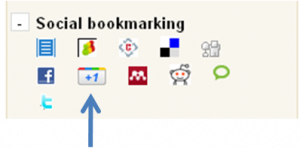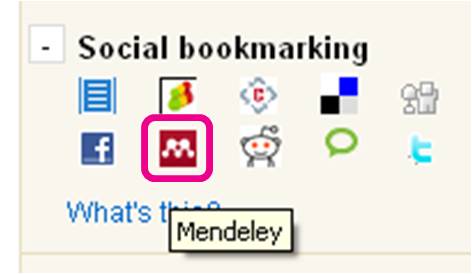The new BMJ Learning site launched at the end of September, with a major redesign. It’s the result of a year of work from developers, editors, and marketing staff, and represents one of the leading online destinations for continuing medical education.
The most obvious change is a fresher look, which, as well as being visually appealing, reflects modern thinking about web design, with an emphasis on accessibility and usability. The new site is also much more dynamic, with lists of popular modules updating to reflect how visitors are using the site, and editor’s picks covering topical issues such as revalidation.
 more…
more…
This post has Comments Off on BMJ Learning relaunches with a new look and personalised content.
“Hello David Payne. We have recommendations for you.” Think of online recommendations and Amazon springs to mind. The store that started with books, launched the Kindle e-reader, and is now the Internet’s answer to John Lewis, is widely credited with getting recommendations right, based on what I and other customers have bought.
I see the logic behind their suggestions. Amazon is currently suggesting I buy 17 books. But does it work for scholarly publishers?

more…
This week saw the launch of a new website for the European Journal of Hospital Pharmacy: Science and Practice, the official journal of the European Association of Hospital Pharmacists (EAHP). The first issue of the newly merged journal will appear in January 2012, bringing together the previous two separate editions of Practice and Science, to provide everything in one, easy to read, journal. The brand new website contains a call for papers, message from the president of EAHP, instructions for authors and details of the editorial board.
The Journal provides a strong platform that concentrates the scientific output of the pharmacy profession and related disciplines, making pharmaceutical innovations and developments in pharmaceutical and biomedical sciences accessible for hospital pharmacists to use in all aspects of their clinical, scientific and professional work.

more…
Project Gutenberg founder Michael Hart, who created the first ever ebook, has died aged 64. Launched in 1971 when Hart decided on a whim to type the US Declaration of Independence into a computer, Project Gutenberg is now one of the largest collections of free ebooks in the world. In 1998 he told Wired magazine that “20 or 30 years from now, there’s going to be some gizmo that kids carry around in their back pocket that has everything in it – including our books, if they want”. How right he was, though the rate of progress has been considerably quicker.
Amazon’s latest financial results reported that so far in 2011 its US wing had sold 120 Kindle ebooks for every 100 paperbacks. “Additionally, during this same time period the company has sold three times as many Kindle books as hardcover books,” the company said in a statement. But is the ebook movement really a “ferocious advance upon the bastions of literary culture“? Is it worthy of comparison with Johannes Gutenberg’s 15th century printing press in terms of milestone status?

more…
Following the release of Google’s new social feature, we have added Google+1 buttons to all BMJ and specialist journal articles. If you’re unfamiliar with this functionality, it is basically a button similar to the Facebook “like”. When you click +1, you’re publicly recommending pages across the web. You can also use +1 to share with the right circles on Google+ (see more on this below). +1’s can help improve Google Search too, since you can see which pages your social connections have +1’d beneath search results and ads.
 Where is it found?
Where is it found?
The Google+1 button on our journals can be found in the social bookmarking section of the navigation bar at the side of every article (see screenshot to the left). When you do a Google search you will also see the little +1 button next to each search result. You can then click this button to recommend search listings that you found useful. more…
Doctors in training are an important audience for the BMJ (they are our future readers) and our dedicated portal for junior doctors includes links to the latest articles, learning modules, case reports and forum discussions from doc2doc, BMJ Group’s clinical community.
The site is an unusual one in that it allows the end user to customise which content they see by opening a porfolio of “widgets” showing on the right hand side. These content widgets include the latest research articles from the BMJ and more than 30 specialist journals, and are selected each week by a junior doctor colleague.

There are also a series of widgets showing the latest educational content from across the Group. These include free modules from BMJ Learning, postgraduate exam questions from OnExamination, and one showing the latest Endgames (a BMJ interactive quiz section aimed at doctors in training). Endgames launched three years ago and typically includes anatomy and picture quizzes, statistical question, and a case report.There is also a widget showing latest case reports from the Group’s online Case Reports journal. more…
In a previous post, we introduced Mendeley, the reference manager and academic social network that’s taking the research world by storm, even scooping an award in the Telegraph’s Start-Up 100 Awards. At the time of writing, Mendeley reports that 1,113,597 people have signed up and over 106 million scientific papers have been uploaded. Medicine is a particularly popular discipline, with over 8 million papers and almost 3,000 groups.

Over the past few weeks we have been working with Mendeley to help you better organise your research, collaborate with others online, and discover the latest medical research. We are in the process of sending Mendeley a complete metadata set, so that full and accurate bibliographic data of all BMJ articles are stored in the Mendeley database. In addition, we have incorporated a ‘web importer’ button across our journals at article-level, so that it takes just one click to add any BMJ paper to your Mendeley library. more…
I recently attended the Fifth Bloomsbury Conference on E-Publishing and E-Publications, entitled ‘Social Media and the Academy: Enhancing and enabling scholarly communication’. There were a variety of talks from scientists, publishers, librarians and archivists; all assessing the role of social media in professional scholarly lives and predicting future trends.
Research life cycles and adoption curves
Professor Ian Rowlands presented the results of a CIBER study that focused on whether social media are impacting on scholarly processes and how influential age and other factors are in shaping the demand for social media. The research life cycle was shown as an 8 stage process beginning with identifying opportunities, finding collaborators, securing support, reviewing literature, collecting research data, analysing research data, disseminating findings and managing the research process. Whilst librarians and publishers tend to get involved towards the final phase of dissemination, Ian suggested that there is a broader role to be played throughout the cycle. His advice was that publishers need to get involved earlier in the scholarly workflow. Microblogging is seen as useful for opportunities, collaboration, literature review, collecting data and, of course, for dissemination. Most people use social media in only one, two or three categories of social media. There are some strong pairings – blogging and microblogging; microblogging and social networking; microblogging and social tagging. more…
QR codes are becoming more and more prevalent in our daily lives. Now commonly used for digital boarding passes, interactive shop windows and advertisements in newspapers, magazines and billboards, they are appealing to our inherent desire to access further information as quickly as possible.
Notably, rather than remaining the domain of entertainment and retail marketing strategies, QR codes are increasingly used as a serious means of information recall in professional and scholarly circles. more…
more…




 Where is it found?
Where is it found?


